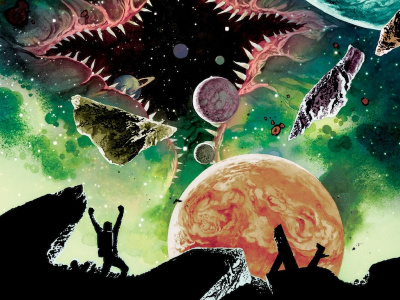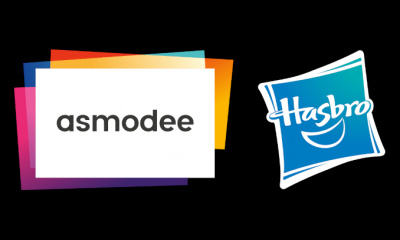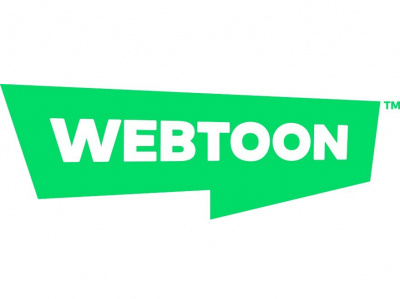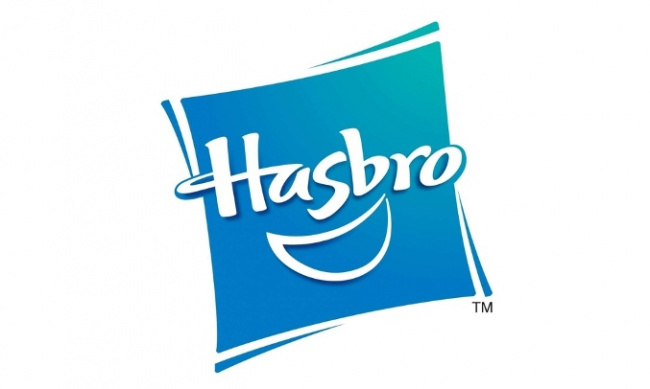 Does Valiant’s embrace of Amazon’s Kindle Worlds platform herald a sea change in industry attitudes toward fan fiction?
Does Valiant’s embrace of Amazon’s Kindle Worlds platform herald a sea change in industry attitudes toward fan fiction?Fan fiction has been many things in its time: amusing hobby, practice ground for budding literary talent, outlet for sexual fantasies, nuisance to copyright owners. Often aesthetically as well as legally dubious, fan fiction has traditionally occupied a position at the margins of pop culture. Today, however, it’s been discovered by marketing and business theorists and rebranded in grandiose terms as “open source branding,” “remix culture” and “user-generated content.” And under those noble guises, fan fiction is poised to play a much larger role in the world of 21st century entertainment.
The highest form of flattery?
Star Trek fandom is credited with giving rise to the modern phenomenon of fan fiction, where enthusiastic amateurs contribute their own stories set in an established fictional universe. But when you think about it, the practice has been around nearly as long as literature itself: what was the Iliad, after all, except an epic reworking of characters and situations already familiar to the audience, telling the stories that everyone really wanted to hear? In the world of comics, the infamous “8-pagers” or “Tijuana Bibles” of the 1930s were fan fiction of a more specialized (and arguably, more common) type, depicting famous characters of the time ranging from Blondie to Popeye (!) in situations that would make Fifty Shades’ Christian Grey blush.
For the most part, when the original creators or copyright holders have deigned to acknowledge the world of fan fiction at all, the reactions range from polite bemusement to outright hostility. This latter approach seems to be the conditioned response of corporate lawyers, who routinely fire off cease-and-desist letters to anyone seen sniffing around the edges of owned IP, even when those folks turn out to be some of the biggest fans (and consumers) of the property, charismatic brand ambassadors, and talented creators.
Fan fiction as brand-building
Every so often a more enlightened approach prevails. Back in the 1930s, H.P. Lovecraft not only tolerated but positively encouraged members of his circle to play in the sandbox of the Cthulhu mythos he invented, often incorporating the innovations of his friends into the emerging canon he was building for his universe. It is unlikely that the stubbornly un-commercial-minded Lovecraft had anything on his mind beyond creating a fun parlor game for his pulpy pen pals, but his prescient embrace of open source marketing probably did more than anything else to put him on the road to literary immortality and built Cthulhu into one of the great pop culture transmedia brands, decades before anyone thought of it in those terms.
In recent times, Lucasfilm, with their annual Star Wars Fan Film Award Contest (first run in 2002), saw the wisdom of tapping into the enormous pool of creative talent among the fan base by legitimizing the most polished and professional efforts within the official Star Wars banner. This produced a decade of inspired work that occasionally eclipsed the franchise’s own efforts – not only at no cost to the company, but with huge reputational benefits and fan engagement value. Unfortunately the contest was discontinued in 2012 and Disney’s historical attitude toward the sharing of intellectual property rights, and its strategy of adding to the official canon with a new film trilogy, does not bode well for its future.
These examples are still the exception rather than the rule. The owners of comics’ most valuable IP fight tooth and nail to prevent the properties’ original creators from claiming credit or sharing in the proceeds; it seems unlikely that they’d be open to sharing with strangers and risk losing control not only of the creative direction, but of the priceless copyrights.
Amazon changes the game
That’s why last month’s announcement by Amazon is so interesting and potentially disruptive. Their Kindle Worlds program promises to open up and legitimize fan fiction, creating a publishing platform to benefit both the original IP holders and enterprising fan authors.
Authors must conform to Amazon (and copyright holder) guidelines excluding pornography, racism and “poor customer experience” (e.g. overly amateurish work), so the deal lacks the freedom afforded by the mimeograph machine and its digital successors. On the other hand, there’s distribution through Kindle and royalties on offer.
Amazon says it has secured licenses from top pop culture properties like Warner Brothers, as well as individual genre authors such as Neal Stephenson and Greg Bear.
On Wednesday, Valiant Comics added itself to the list. For a company trying to rekindle interest in a universe of characters who enjoyed their greatest popularity during the Clinton administration, this is a no-brainer. The plusses of activating fan communities, discovering new talent, and wearing the white hat in an industry full of mustache-twisting villains when it comes to IP rights surely outweigh any risks.
Is “open source branding” the future of pop culture?
Valiant is making a strategic move, not just a tactical one. It is embracing an approach to IP management championed by marketing experts and cultural commentators ranging from Don Tapscott (Wikinomics) to Matt Mason (The Pirate’s Dilemma) to Kirby Ferguson (Everything is Remix) – advice that boils down to the old saw, “if you can’t beat ‘em, join ‘em.”
These folks and others argue that creativity has always been an imitative and collaborative process, and the 20th century methods of top-down brand management and restrictive IP ownership hurt the main objectives of the owners – greater awareness and engagement – more than they help. In a world where technologies like social networks and digital publishing remove the barriers to participation and new tools help individuals achieve production values that compare to larger-scale efforts, companies should embrace and encourage social collaboration around their properties rather than seek to shut it down.
This is starting to happen elsewhere in the business world. Last summer, megabrands Home Depot and Kraft Foods sponsored a “hack-a-thon,” where hundreds of independent mobile application developers competed for tens of thousands of dollars in prize money to develop the coolest apps using the companies’ graphic assets and data systems.
Sounds like a great event at Comic-Con, doesn’t it?
Is it very easy to see a similar model working for comics, gaming, genre films and across the pop culture spectrum, where enthusiasm needs little incentive to find expression. The question is, who among the big brands will jump in first with an active property?
Rob Salkowitz (@robsalk) is a business futurist and author of several books including Comic-Con and the Business of Pop Culture.
The opinions expressed in this column are solely those of the writer, and do not necessarily reflect the views of the editorial staff of ICv2.com.







